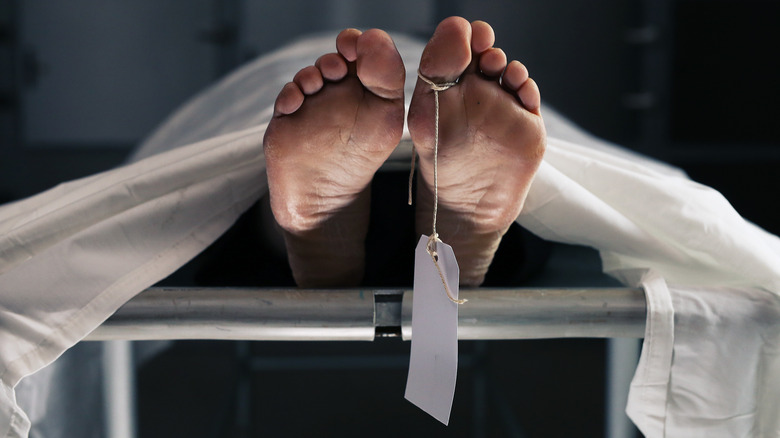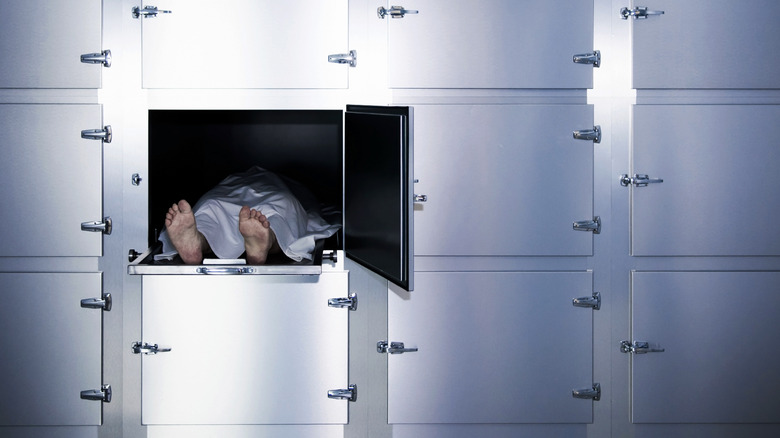Is An Autopsy Done For Every Death?
Anyone who has ever watched a crime drama on TV or listened to a true-crime podcast is probably somewhat familiar with an autopsy. The complicated medical procedure is conducted by a licensed medical examiner, and is performed in order to determine a person's exact manner of death, according to WebMD. The medical examiner, or in some states, a pathologist, examines the body, cuts open the cadaver to examine and weigh the internal organs and collects samples of blood, tissue, and other bodily fluids to send out to labs for testing. A typical autopsy lasts between one to two hours, although they may take longer, and once the results are collected, the doctor makes a final report that typically explains the cause of death. But does everyone have to get their insides cut open after they die?
Well, if you are the type of person who gets an icky feeling at the thought of someone peering into your guts, then you will probably be relieved to hear that the answer is no. In fact, the majority of people do not receive an autopsy but are simply remembered and their bodies put to rest in accordance with their wishes and last will and testament. Further examination of a person's body after death is only necessary in very specific circumstances.
Autopsies are performed in the case of suspicious or unexplained deaths
According to Nevada's regional medical examiner's office in Washoe County, autopsies can be ordered by the state in the event of an unexplained or suspicious death — or if the deceased was the victim of a crime or deadly police action.
Autopsies could also be mandated if the deceased was unidentified, an infant, or died as a result of a car accident or workplace injury. A family can also request an autopsy and may be granted one if they suspect there was something amiss over their loved ones' death, according to Medicine Net. They may also feel they would benefit from an autopsy if their family member died from a type of genetic disease or illness that could potentially affect other blood relatives. Permission for an autopsy can also be requested of the family by a physician if they believe that examining the remains may help them with diagnosis or treatment of certain illnesses — although the next of kin do not necessarily have to grant this wish.
If a person dies of natural causes, though, or their cause of death is fairly clear-cut and not suspicious in any way, it is highly unlikely an autopsy would be performed.

